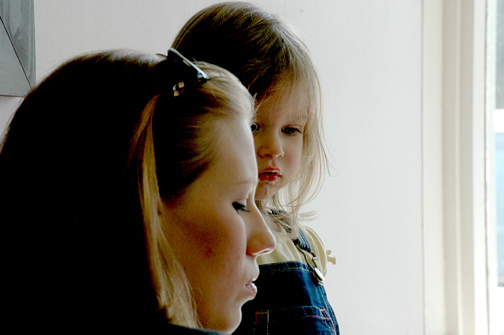Sociability • Confidence
Self-Esteem
Liking ourselves – having high self-esteem, as we tend to put it – is crucial to any feeling of well-being. What’s odd then is just how unpredictable the allocation of esteem often turns out to be. There are people with modest jobs, unspectacular bodies and unglamorous friends who confidently lay claim to buoyant levels of self esteem; they seem to like themselves despite the absence of any vigorous signs of approval from the world at large.
And then there are others for whom no amount of achievement, prestige, and financial security does the trick. They anxiously chastise and critique themselves, always feeling that they have under-performed, never quite trusting that they really deserve to exist.
Having sound levels of self-esteem ultimately appears to have precious little to do with hitting any verifiable benchmarks. It seems connected up with a stranger, more internal, more subjective kind of logic, with factors somewhat immune to standard notions of achievements – and of which three stand out in particular:
1. What your same-sex parent did
The single greatest determinant of how much you will esteem yourself is how you compare with your same-sex parent – whether you have achieved more or less than mum or dad.
Rather brutally, it seems that comfortable levels of self-esteem are only available to those who have managed to outpace their same-sex parent.
Those from a poor background have a big, unwitting advantage here. You might only be driving a beaten-up taxi around Manhattan and living in one room in Harlem; but if your same-sex parent was a subsistence farmer from eastern Burkina Faso, you’ll feel at times princely nevertheless.
Similarly, yet more darkly, you might have grown up in ostensibly privileged circumstances, but if your same sex parent made a few hundred million and you’re only managing to pull in a middle class salary, you’re liable never quite to shake off a haunting feeling that you’re a disgrace.
2. What your peer group is up to
We don’t feel inadequate in relation to everyone who has more than us: only those who we’ve come to see as belonging to another crucial determinant of self-esteem: our peer group. By this we mean, the people who were educated with us; who are around our age; and who live in our part of the world.
These people matter infinitely more to our sense of well-being than the population at large. It is a piece of extreme bad luck – and a matter for particular commiseration and assistance – if ever our peer group produces someone who starts a billion dollar company or, God forbid, ends up running the country.
Every time someone we went to school with does better than us, a small part of us will die. We should therefore take immense care to attend very ordinary schools and, after graduation, to throw all invitations to reunions straight in the trash.
3. What kind of love you received in childhood
A lot also depends on what sort of love we received in childhood; in particular, how many conditions it came attached with.
Some of us had parents who only knew how to give out the conditional kind of love. It was all about the grades and the school reports. We therefore grew up – of course – to be high-achievers, but it’s not so easy, running around your whole lifelong, desperate to put out the raging fires of self-hatred, striving to impress everyone you meet in search of an unsatisfied desire for a narrower parental approval you never knew.
But others, the blessed ones who have known unconditional love from the start, will be OK just to be, they won’t have to do quite so much pushing, they’ll have an inner basic buoyancy guaranteed by the knowledge that they once mattered immeasurably. A big reversal like being fired will be unpleasant; it won’t necessarily have to be a tragedy.
***
Knowing about the odd, internal origins of self-esteem is crucial because of how often we pursue goals in the belief that success will – at last – give us the keys to feeling good about ourselves.
It seems the truth is slightly darker. You might ostensibly be doing very well at work, but if your dad was a big shot, or your school buddy became President or your parents didn’t tank you up with the right, unconditional sort of love, no amount of striving, goal-scoring and medal-winning is ever really going to do it.
This changes where we should imagine our challenges lie. Feeling good about ourselves isn’t ultimately something we can bring about through professional or economic achievements alone: in huge part, it’s going to be about coming to terms with ourselves; the result of understanding our past and the dynamics of shame, conditionality and humiliation that might lie there. It turns out that high self-esteem seems largely to be a prize of psychology rather than the fruit of anything we actually manage to achieve out in the world.































